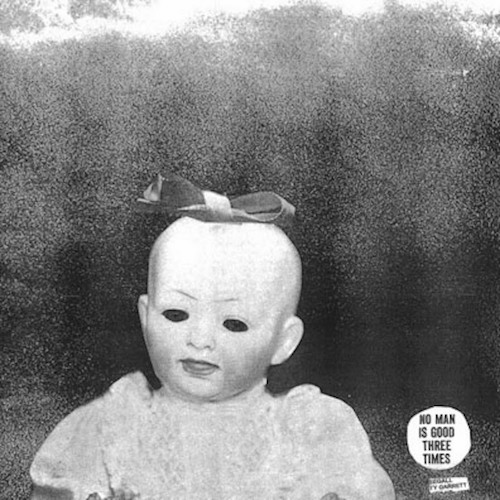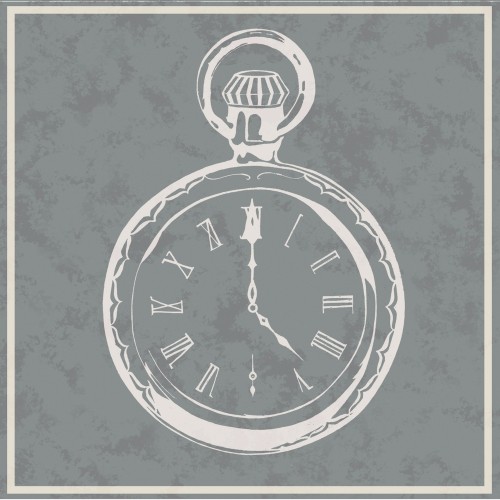 Release Date: September 13th, 2011
Release Date: September 13th, 2011





Listening to Saves the Day’s third post-In Reverie album, Daybreak, feels a little bit like intruding on the saddest case of domestic co-dependency ever. The last in a stunted trilogy that finds frontman Chris Conley “confronting” his emotional and psychiatric issues through tired pop-punk, Daybreak is a classic example of the one-step-back formula in the phrase, “Two steps forward, one step back.” While Saves the Day has made great strides after In Reverie (2003) to prove the band isn’t one of the dozens of emo-punk also-rans, Daybreak is a classic also-ran album. It strains for what once was grand about the band while at the same time diving down new pathways that, unlike the welcome changes of Under the Boards (2007), bear little to no fruit.
Part of the reason Daybreak doesn’t resemble other Saves the Day albums lies in the total lineup refresh the band went through in 2009. Conley stands now as the only Saves the Day member who had anything to do with Under the Boards, or any album before it. This isn’t your Saves the Day, unless your Saves the Day is merely Conley’s magically still-rising vocal pitch. Tracks such as “Chameleon” make this abundantly clear. Proggy, acoustic guitar and cymbal pangs give way to a U2 guitar chorus tied together with Conley’s pleading, unsure lyrics.
The musical changes are easier to stomach, even if they barely resemble old Saves the Day. “Let It All Go” is chugging number that gets to a not-altogether-great conclusion. Singles “1984” and “Deranged and Desperate” achieve that big chorus that old-school Saves the Day seemed to have in spades. If in the market for an oddball, 10-minute, half-emo experiment that has no other layers other than the overt ones, the title (and opening) track does just fine.
None of the tunes (with the possible exception of “Living Without Love”) hold muster against any of Saves the Day’s previous efforts, but the band’s constant reinvention of itself is at least interesting.
The same can’t be said for Conley. Where his peers have failed lyrically by running out of flavor (Taking Back Sunday’s Adam Lazarra) or obsessively confounding an audience with meaningless verse (Brand New’s Jesse Lacey), Conley seems to have dropped all pretense of artistic distance and begun treating his lyrics (and by extension Saves the Day itself) as his one true love. It’s not hard to see the reasoning in this: when an individual is the last remaining original member of a band many call “seminal,” it’s probably very easy to become emotionally, even somewhat romantically, attached to the idea of a band.
Conley has taken the whole thing a step too far. With the exception of the title track, all of the songs on Daybreak have Conley begging for the rekindling of a spark that has apparently long since gone out. While he might be able to personally say that he’s singing to a woman, or a significant other, we don’t know this person. In a listener’s ear, Conley is either singing to us or himself, both markedly co-dependent, dangerous choices. Daybreak is marketed as the turn toward health, the breaking of a dam of self-destruction and letting a wellspring of positivity flow. Instead, we get Conley wailing every possible iteration of, “I love you; come back.” The lyrical deficiencies are tiring and slightly offensive–Conley is implying that he’s better, yet still weakly cloying to a subject that doesn’t love him anymore. From an armchair psychological standpoint, a song such as “O” says it all. “Sitting here all along, waiting for you to come home to yourself,” laid over the sappiest emo ballad the band have ever written, is proof that despite claims of health, Conley is still the same emo-punk boy he used to be. This time, the narrative is just a little too familiar.
Saves the Day – Daybreak tracklist:
- “Daybreak”
- “Let It All Go”
- “1984”
- “E”
- “Z”
- “Deranged and Desperate”
- “Chameleon”
- “Living Without Love”
- “U”
- “O”
- “Undress Me”


